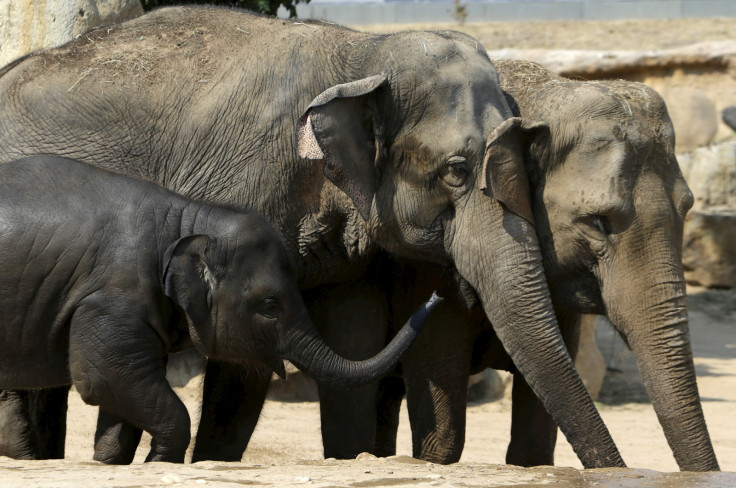Family of 4 Indian elephants electrocuted by fallen power cable
The 2 adults and 2 calves had ventured outside an Indian wildlife sanctuary in search of food.
With the onset of the monsoon season in India, come a string of related mishaps and accidents. In the rural district of Kodagu in Karnataka, a family of four wild elephants were killed after being electrocuted by a fallen exposed power cable. According to The Indian Express, two adults and two calves ventured outside the Nagarahole wildlife sanctuary on 26 June in search of food when the incident occurred.
They entered a neighbouring coffee estate where a live electric cable had fallen to the ground due to heavy rains. On stepping on the lines, all four animals were electrocuted and died on the spot. The incident occurred two weeks after two elephants were killed were electrocuted in another village in the state.
Clarification has been issued by the department reg electrocution of 4 elephants at Virajpet, Kodagu pic.twitter.com/mue7OOsstw
— IFS@Karnataka (@IFS_Karnataka) June 27, 2017
The local forest department had previously stated that they had eliminated 'accidental electrocution' threats to wild animals over the past two years. Now, the Deputy Conservator of Forests, Manoj Kumar has called for a meeting with CHESCom (Chamundeshwari Electricity Corporation Ltd) which manages the local power supply.
"We will urge them to take up underground cabling or use other technology in areas known to attract elephants. If that fails, we will take up the issue with the State government," he said.
Locals claim the accident took place because the elephant corridor had been blocked by private estates which also installed electric fencing to ward off wild elephant incursions.
"Whenever there is human death due to elephants, the mob surrounds us as if they are our pet animals left out to kill them," Indian Forest Service Deputy Conservator of Bengaluru Urban Dipika Bajpai tweeted alongside photos of the elephants.
Four elephants electrocuted in Virajpet today in a pvt coffee estate. pic.twitter.com/9l2fbh6q9F
— Dipika Bajpai (@dipika_bajpai) June 27, 2017
The Kodagu district, (formerly the princely kingdom of Coorg) has one of the country's highest populations of elephants. However, the animals are under threat from increasing urbanisation as plantations set up deadlier barricades to keep them from venturing in and destroying crop.
"With forests being cut down and humans encroaching on areas where animals once lived, elephants and other animals are being left with almost nowhere to go, and routinely suffer from being hit by trains, being electrocuted, or being involved in other conflicts," Nikunj Sharma, Lead-Public Policy, PETA India explained.
"To protect elephants, we must avoid high tension wires passing through forests, protect forests and mark more areas as off-limits for humans. Where the laying of wires cannot be avoided, alternative measures such as laying them underground, which would be safer for both humans and animals, should be considered. A probe must be done to understand how this was allowed, and to ensure it is avoided in the future," he told IBTimes UK when asked about measures that can be implemented to reduce accidents.

© Copyright IBTimes 2025. All rights reserved.




















